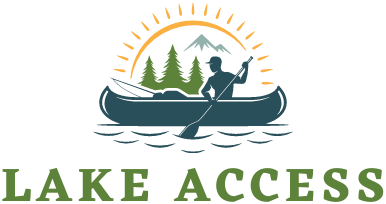10 Best Fishing Face Masks: Our Favorite Neck Gaiters for Fishing
Face masks and gaiters are not just for cold weather. They can also be used to protect you from the sun, wind, and dust while fishing. There are many different …
Face masks and gaiters are not just for cold weather. They can also be used to protect you from the sun, wind, and dust while fishing. There are many different …

Lake Lanier, nestled in the beautiful state of Georgia, has long been a subject of fascination and intrigue. The sprawling reservoir, covering parts of Hall, Forsyth, Dawson, Gwinnett, and Lumpkin …
Imagine waking to the gentle rhythm of waves, the sun painting the sky in warm hues, and the scent of fresh pine filling your lungs. This is the magic of …
Have you ever found yourself gazing at the vast expanse of Lake Michigan, wondering about its composition? This article aims to unravel the mystery surrounding the salinity of Lake Michigan, …
Michigan, known as the Great Lakes State, is home to more than 11,000 inland lakes. Among these, there are some that stand out for their exceptional clarity. These Clearest Lakes …
Lake Mead is a big lake with room for lots of boats. On any given day, you might find around 1900 to 2000 boats enjoying the water. This number can change because …
If you’re a fishing enthusiast, you’ve likely heard about Reelfoot Lake in Tennessee. Known for its excellent fishing opportunities, this lake attracts thousands of anglers every year. But with so …
If you’re passionate about sailing or eager to embark on a sailing adventure, you’ve likely encountered the renowned Sunfish sailboat. The Sunfish is a beloved and adaptable recreational sailboat, captivating …
If you’re yearning for a truly revitalizing and breathtaking swimming destination that immerses you in the sheer splendor of nature, look no further than the captivating Colchuck Lake in the …
When we think of rip currents, we often imagine them happening in the ocean. But did you know these solid underwater currents can also happen in lakes? This can be …
Imagine your breath creating miniature clouds as it meets the cold winter air. The vast expanse of Lake Winnipeg, its icy surface twinkling under the soft glow of the sunrise, …
In the alluring landscape of New Hampshire resides one of its gems, Lake Winnipesaukee. Notable for its stunning beauty and overflowing options for leisure activities, its charm captivates visitors from …
Ever observed water as it spirals in a captivating dance, plunging into a tunnel-like formation, and wondered, “What causes this?” This mesmerizing phenomenon, known as a whirlpool, can captivate any …